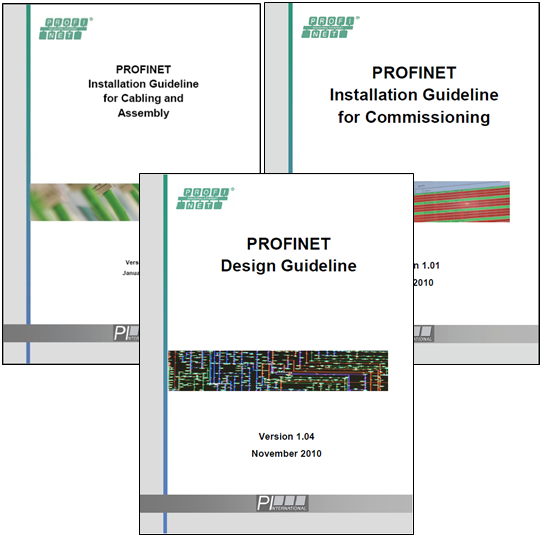PROFINET offers a massive breadth and depth of application scenarios for industrial automation. Examples of breadth include wired and wireless IO, factory automation, motion control with IRT for drives/motors, and process automation. Examples of depth include simple device replacement/commissioning, fast startup, Shared and I -device, and redundancy, just to name a few. If you have questions about application criteria, for example about network topology, commissioning devices, motion control, wireless, redundancy or others, it might be difficult to determine where to look and find answers.
 No need to worry, PI offers a set of PROFINET guidelines and other tools to help answer your questions.
No need to worry, PI offers a set of PROFINET guidelines and other tools to help answer your questions.
Three Main Documents
The guidelines come documents and cover a variety of important topics:
- Design Guideline
- Network:
- Planning
- Load
- Design Help
- Network:
- Installation Guideline
- Wiring
- Cable and Connectors
- Shielding and Grounding
- Commissioning Guideline
- Network configuration
- Device setup and commissioning
PI also offers a network load calculation tool that can be used to estimate the load from the PROFINET side of the system. This calculation can be based on the number of devices, types, amount of data and other criteria.
In conclusion, the PROFINET guidelines can help ensure your networks are stable and will operate efficiently. See our next article to see what each document covers explained in more detail as well as some more thoughts about the network load calculation tool. Make sure to look at these guidelines before starting your next PROFINET project. To learn more about navigating them while at the same time getting hands-on experience attend a PROFINET Certified training class near you.